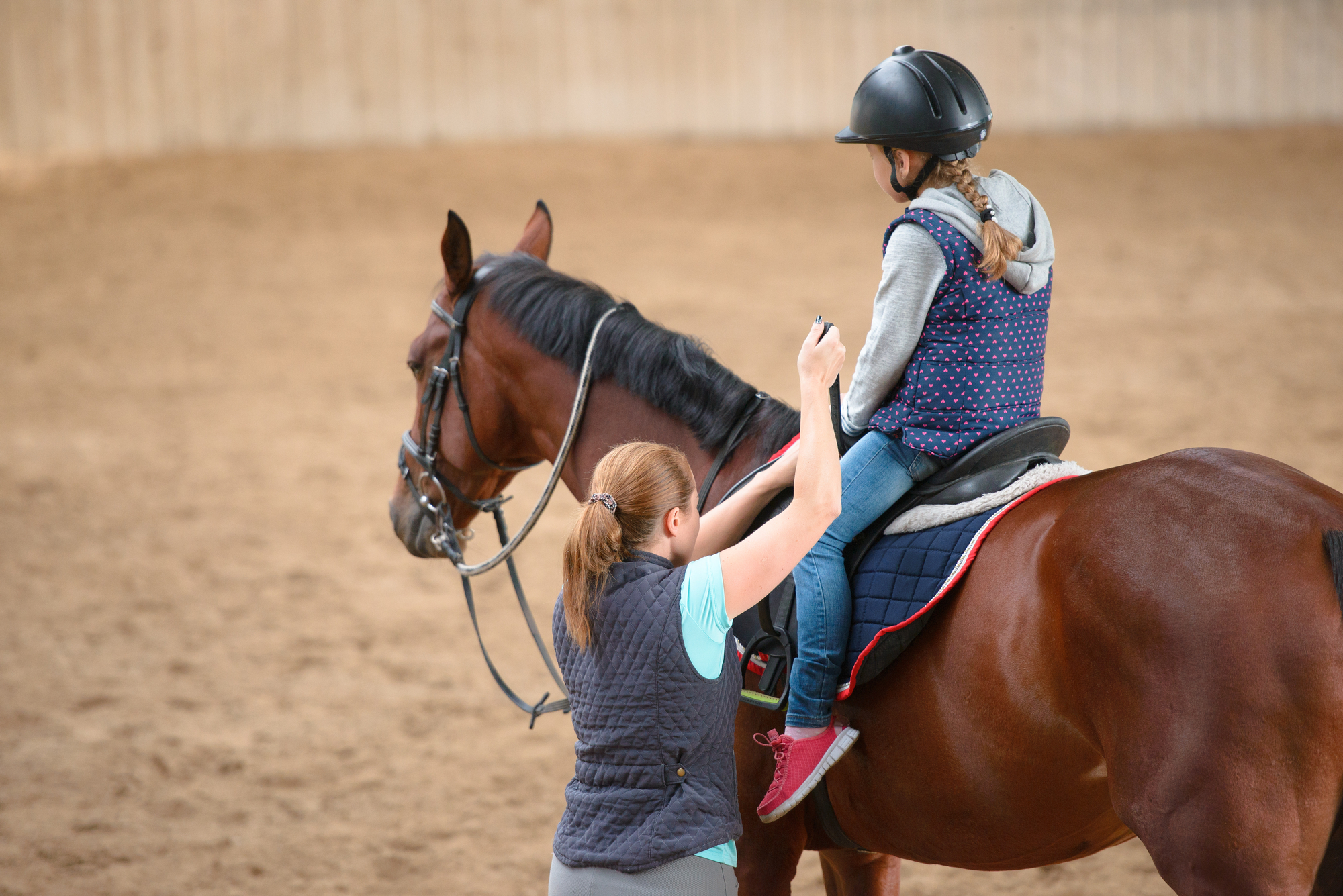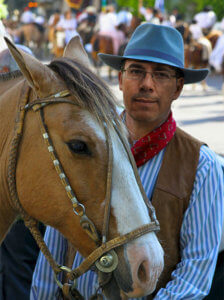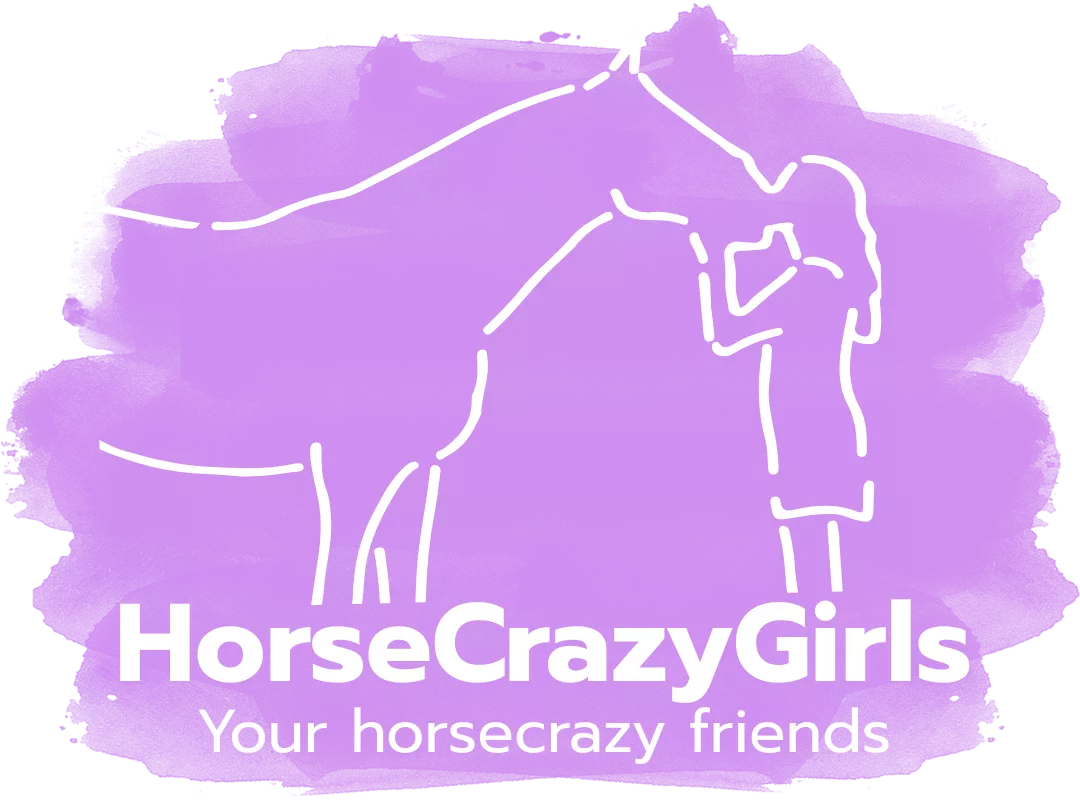how to find the perfect riding instructor
By: David Garcia (guest contributor)
Choosing a good riding instructor is paramount to developing proper riding skills. This person can help you enter the equestrian community and take up horseback riding with flying colors. Although some riders prefer to learn on their own, the trainer is still your guide and friend in the world of equines.
If you are looking for horse training tips/resources check out our horse training page. Additionally, if you want advice on how to afford riding lessons or how to find places to take riding lessons check out our riding lessons page.
FIRST STEPS
To get started, you can visit an equestrian club or barn, and ask about the educational process and the staff. If the instructors are calm and friendly, the horses are clean and well-groomed, and the stable is neat - congrats, you've found an excellent place to start horse riding! Besides, it makes sense to see how your future trainer provides classes. If they act unconfidently, the horses are not handled well, or the riders behave poorly - it's better to avoid such an instructor.
Tip from Sydney: If you aren't sure where to find barns I recommend doing a Google search, going to a local horse show, talking to friends that ride, or even asking people at your local tack store or feed store. Local horse shows are my favorite option because you can see trainers interact with their riders, you can see how the riders interact with one another, and you can see the barn's horses going in the different classes. Just remember that if you go to a local show trainers are going to be really busy so just write down the name of the barn and call them later.
SMALL TALK WITH AN INSTRUCTOR
When you're introduced to a new trainer, they will initially ask you about your riding experience and skills. They may even ask you personal questions such as your height and weight. Be honest! The instructor needs this information in order to choose a proper horse for you. And if the lesson is not individual - select a group of peer riders. Before you start working out with your new coach, you'll need to spend time talking with him or her. If you took lessons before, tell him how your things were going, what you were doing, what your level was, and what horses you prefer. (If you've only jumped 2 'don't tell them you've jumped 3' no matter how much you want to be at that level.) The more your instructor knows about you, the easier it will be to find a common ground.
Apart from that, let your riding instructor know the goals and objectives of your training. Trail riding just for fun is different from getting prepared for horse shows . Different skills and techniques are required. Discuss your schedule before hopping on a horse. The working hours of the horse instructor can be different from when you can ride. They could be a non-staff worker at the barns or they can visit your property to provide lessons.
Tip from Sydney: Another reason it is important to discuss scheduling is because the instructor you rode with and loved may not be regularly available. Some people think that because they rode with a trainer for their first lesson this trainer will be able to give them all their lessons, but this is not necessarily true. If a barn is regularly going to shows the head trainer or trainers will most likely be the ones going to the horse shows which means you will probably be riding with the assistant trainer. While this may not be a problem if the barn is going to shows four times a year or if you plan on going to all the horse shows it will start to be a problem if the barn goes to horse shows 8-12 weeks out of the year or even longer.
INDIVIDUAL VS GROUP LESSONS
Horse owners generally opt for private lessons with an instructor. This, of course, is an extremely convenient option as the trainer's attention will be focused on you only. You can enroll in individual lessons at any time. When riding in a group you will not get as much personal attention, though checking with other riders can be advantageous as well. We recommend taking the first few lessons as private lessons to learn the nitty-gritty of horse riding. This includes mounting and dismounting, walking, turning, and stopping. But if you're a team player, or on a budget, you can choose group lessons.
Tip from Sydney: Group lessons are also great when you and/or your horse are getting back into shape. Often times as you or your horse are starting to canter longer, starting to jump courses, doing full dressage tests, riding patterns, etc your horse and you will struggle with your stamina and group lessons can give you breaks to recover. However, once both of you have good stamina and are wanting to prepare for horse shows your trainer will most likely insist on private lessons.
CHECK YOUR SUPERVISOR
Before hiring an instructor, make sure you ask if they know first aid. This is essential, as there may be nobody around but them if you are injured. Ask your experienced riding friends to assess whether their qualifications match the ones they stated. If you're looking for an instructor for your children, ask about their experience with teaching children.
Tip from Sydney: Recently many associations have implemented SafeSport requirements for horse trainers and riders. You should check to see if the trainer you are considering riding with is up to date on their SafeSport training and you should also do research to make sure that the trainer has not gotten suspended by any associations. You may also want to look into the trainer's credentials such as if they are a certified trainer. Certificates can be earned from different associations such as USHJA. In the UK and many European countries certifications are mandatory for instructors, but in the U.S. certifications are not mandatory and many trainers do not have them. Even if a trainer doesn't have a certification this does not mean they are not a good trainer so if every thing else looks good I wouldn't not ride with someone because of a certificate alone. Likewise I wouldn't ride with a trainer just because they had a certificate.
GET ON WELL WITH YOUR TRAINER
Listen carefully to the opinion of your future trainer. Let them assess your current riding skills and suggest a proper program. This will allow you to get aware of the entire educational process from A to Z. The instructor's opinion is of overriding importance. For instance, if your instructor says that you should avoid show jumping until you develop more advanced skills, there's no need to argue: listen to her opinion. Of course, they should provide you with solid reasons why they made such a decision. Perhaps you need a bit of practice before moving on.
Tip from Sydney: You may also want to talk with other riding students and their parents. Ask them how long they have been riding at the barn, what they like about riding at the barn, what they think of the trainer, how long they have been riding, what fun things the barn does together, etc. If there are not a lot of people that have been riding with the instructor very long that may indicate that the riding instructor has a hard time keeping students for one reason or another.
USEFUL TIPS YOU SHOULD CONSIDER
Do NOT hesitate to ask your instructor questions so that they will feel you are truly interested in equestrian sports. If you fall off the horse, there's NO need to panic. It happens to everyone at some point! Your instructor will help you, and you should learn how to trust them over time.
Tip from Sydney: Recently many associations have implemented SafeSport requirements for horse trainers and riders. You should check to see if the trainer you are considering riding with is up to date on their SafeSport training and you should also do research to make sure that the trainer has not gotten suspended by any associations.
THE BOTTOM LINE
To sum up, choosing the right riding instructor might be challenging but it's worth your effort. Once you find the top-notch trainer, you may end up achieving great outcomes bonding with your horse and performing together.
David Garcia considers himself a huge fan of equestrian sports. Being born in a family of farmers, he was literally living at the ranch. His first riding experience was when David was six. He was so fascinated with the grace and intelligence of horses so he decided to plunge into equestrianism deeply. Thus, he's been participating in a range of horse races and shows where he often grabs medal positions.
David believes that we could be better at sharing our experiences. That is why he founded Horsezz - the blog that is dedicated to equestrian sports.






